Recent Posts
Recent Comments
- Marcus Breen on Lenin was a neoliberal – and other jokes
- colorado aspen labs on The Broken Language of ‘Left’ and ‘Right’
- Doublethink: Remain means Brexit – Brexit means Remain – New Politics on Blindly following “the will of the people” is lazy and unprincipled
- Socialism and communism are virtually synonymous – New Politics on The mysterious socialism of Bernie Sanders
- The myth of classical liberalism – New Politics on Mythical Markets and Neoliberalism
Archives
- July 2019
- May 2019
- April 2019
- March 2019
- February 2019
- September 2018
- August 2018
- July 2018
- June 2018
- May 2018
- February 2018
- January 2018
- October 2017
- September 2017
- August 2017
- July 2017
- May 2017
- April 2017
- March 2017
- February 2017
- January 2017
- December 2016
- November 2016
- October 2016
- September 2016
- August 2016
- July 2016
- June 2016
- May 2016
Categories
- Assimilation
- Bernie Sanders
- Bertrand Russell
- Brexit
- Caroline Lucas
- Christianity
- Common ownership
- Democracy
- Donald Trump
- E P Thompson
- George Bernard Shaw
- George Monbiot
- Green Party
- Immigration
- Islam
- Jeremy Corbyn
- Joan Robinson
- Judaism
- Karl Marx
- Khmer Rouge
- Labour Party
- Left politics
- Lenin
- Leszek Kolakowski
- Liberalism
- Ludwig von Mises
- Mao Zedong
- Markets
- Marxism
- Michael Polanyi
- Naomi Klein
- Nationalization
- Neoliberalism
- Noam Chomsky
- Philip Mirowski
- Politics
- Populism
- Private enterprise
- Property
- Religion
- Right politics
- Robert Owen
- Socialism
- Soviet Union
- Tony Benn
- Tony Blair
- Tony Blair
- Uncategorized
- Venezuela
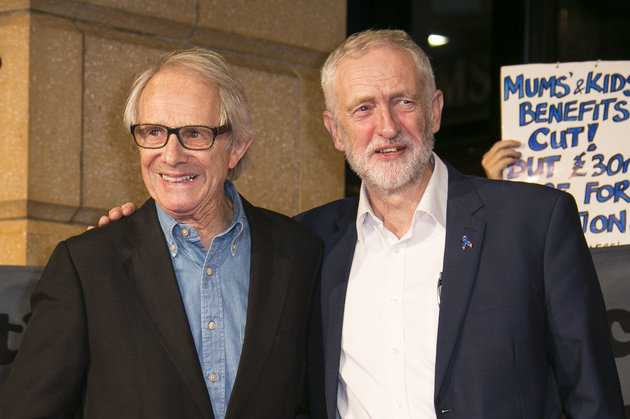
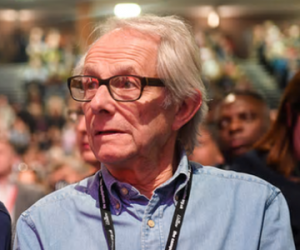 What does Loach’s invitation tell us about the state of the Labour Party today? We need to look at his political views. We need to understand the politics of a celebrity that Labour now chooses to put on public display.
What does Loach’s invitation tell us about the state of the Labour Party today? We need to look at his political views. We need to understand the politics of a celebrity that Labour now chooses to put on public display. Other projects by Loach are different in style. He was to direct Jim Allen’s controversial stage play, Perdition. Allen was a Trotskyist and a close friend of Loach, until his death in 1999. Presented as a courtroom drama, the play dealt with an allegation of collaboration between Hungarian Zionists and the Nazis during the Holocaust.
Other projects by Loach are different in style. He was to direct Jim Allen’s controversial stage play, Perdition. Allen was a Trotskyist and a close friend of Loach, until his death in 1999. Presented as a courtroom drama, the play dealt with an allegation of collaboration between Hungarian Zionists and the Nazis during the Holocaust.  A similar unrealism appears in The Wind That Shakes the Barley (2006). The script was written by Paul Laverty. The film is set in Ireland in the period 1919-1923. It depicts the struggle for independence and the subsequent civil war.
A similar unrealism appears in The Wind That Shakes the Barley (2006). The script was written by Paul Laverty. The film is set in Ireland in the period 1919-1923. It depicts the struggle for independence and the subsequent civil war. Left Unity put up ten candidates in the 2015 general election, to stand against prominent Labour figures including Andy Burnham and Harriet Harman. Left Unity also contested some local elections. There is an unintentional irony in the u-word in its name.
Left Unity put up ten candidates in the 2015 general election, to stand against prominent Labour figures including Andy Burnham and Harriet Harman. Left Unity also contested some local elections. There is an unintentional irony in the u-word in its name.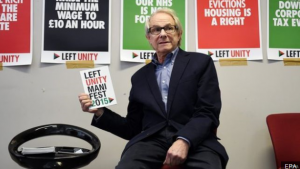 Loach decisively rejected social democracy. Referring to Labour and other similar parties, he said that “they’re mainly social democrat parties that think you can manipulate the markets to the advantage of ordinary people”.
Loach decisively rejected social democracy. Referring to Labour and other similar parties, he said that “they’re mainly social democrat parties that think you can manipulate the markets to the advantage of ordinary people”.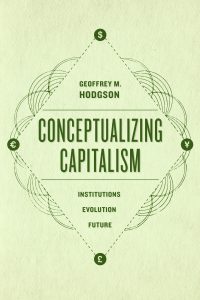 In my book Conceptualizing Capitalism I go further, to argue that the state is necessary to part-constitute the legal framework of a capitalist economy. Hence some state intervention in a market economy is unavoidable. Given this, the practical question for progressives is where and how it should intervene. The literature on varieties of capitalism shows that many different outcomes are possible within capitalism, and
In my book Conceptualizing Capitalism I go further, to argue that the state is necessary to part-constitute the legal framework of a capitalist economy. Hence some state intervention in a market economy is unavoidable. Given this, the practical question for progressives is where and how it should intervene. The literature on varieties of capitalism shows that many different outcomes are possible within capitalism, and 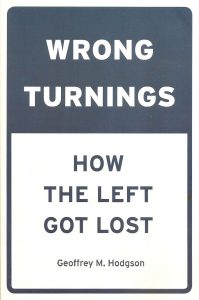 This book elaborates on some of the political issues raised in this blog:
This book elaborates on some of the political issues raised in this blog: